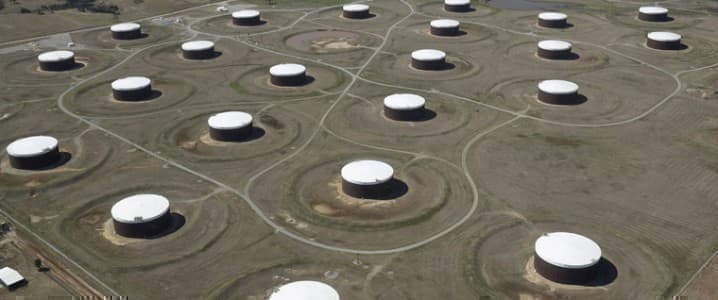For weeks, the Biden administration has been doing everything possible to avoid releasing oil from the United States strategic reserve in an attempt to dampen out-of-control oil and gas prices. President Biden has pleaded with OPEC+ to open the taps and urged The Federal Trade Commission to open a federal investigation into whether domestic oil and gas companies have acted illegally to keep prices high at the pumps at the expense of U.S. consumers.
So far, nothing has worked. Gasoline prices continue to climb even as the cost of production falls, and the Biden administration is scrambling to save face. Finally, this week, Biden threw in the towel and authorized the opening of the strategic oil reserves that he struggled so hard to avoid — but he’s bringing key Asian economic and geopolitical powers on board as well.
“Today, the President is announcing that the Department of Energy will make available releases of 50 million barrels of oil from the Strategic Petroleum Reserve to lower prices for Americans and address the mismatch between demand exiting the pandemic and supply,” the White House said on Tuesday. 32 million of these barrels will be part of an exchange — though they are being extracted now as an emergency relief measure, they will be returned to strategic oil reserves in full over the next several years when oil prices are projected to level off.
Biden has been extremely reluctant to compromise the United States’ energy security in any way, but he has leaned hard on his most prized skill set — international relations and complex diplomatic negotiations — to lessen the blow and level the playing field.
[embedded content]
“As a result of President Biden’s leadership and our diplomatic efforts, this release will be taken in parallel with other major energy consuming nations including China, India, Japan, Republic of Korea and the United Kingdom,” the White House went on to say. “This culminates weeks of consultations with countries around the world, and we are already seeing the effect of this work on oil prices. Over the last several weeks as reports of this work became public, oil prices are down nearly 10 percent.”
The coordinated announcements from China, India, Japan, South Korea and the UK all referenced the need to control global oil markets and an imperative for international cooperation (all of the nations of OPEC+ notwithstanding) to do so. Biden has already been mocked for his decision which does not guarantee any meaningful relief from sticker shock at the gas pumps and which, furthermore, seems at odds or even hypocritical when viewed in the context of this month’s COP26 climate pledges.
China, which usually is highly secretive and protective of its unknown quantities of reserved oil (reported to be around 37.7 million tons in 2017), will be releasing a — you guessed it — undisclosed amount of oil. China, which historically bases all of its energy decisions around energy security and independence, clearly sees a release from their coveted reserves as a fair trade-off for a strong, if nascent, alliance against OPEC.
Japan, for its part, had 388 million barrels of total strategic crude oil stocks as of June 2020, and will also be releasing an unspecified quantity in the “hundreds of thousands of kiloliters of crude oil” in a move that “marks an extraordinary moment for resource-poor Japan,” according to reporting from the Japan Times. Japan, which has strong laws mandating certain levels of oil stockpiling, sees such a release as a last resort. There have only been five such releases in the nation’s history, taking place after such emergencies as the Gulf War and 2011’s devastating earthquake and tsunami.
India, which is an energy-strapped nation under the best of circumstances, has also agreed to release 5 million barrels. The Indian government directly points to OPEC as the reason for their cooperation in the coordinated release, citing “concern at supply of oil being artificially adjusted below demand levels by oil producing countries.”
The actual impact of this oil release on global markets remains to be seen. Oil producers have expressed concern that ramping up oil supplies could lead to a crash in the near future. But it seems clear that Biden and his coordinated release alliance seem willing to take this risk in exchange for some geopolitical leverage against OPEC+.
By Haley Zaremba for Oilprice.com
More Top Reads From Oilprice.com:



























